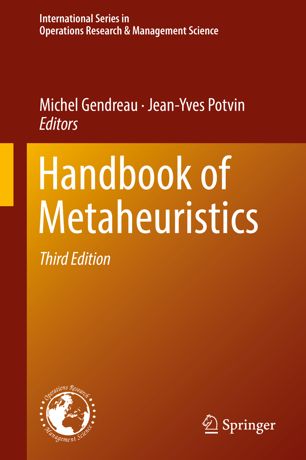

Most ebook files are in PDF format, so you can easily read them using various software such as Foxit Reader or directly on the Google Chrome browser.
Some ebook files are released by publishers in other formats such as .awz, .mobi, .epub, .fb2, etc. You may need to install specific software to read these formats on mobile/PC, such as Calibre.
Please read the tutorial at this link: https://ebookbell.com/faq
We offer FREE conversion to the popular formats you request; however, this may take some time. Therefore, right after payment, please email us, and we will try to provide the service as quickly as possible.
For some exceptional file formats or broken links (if any), please refrain from opening any disputes. Instead, email us first, and we will try to assist within a maximum of 6 hours.
EbookBell Team

5.0
78 reviewsThe third edition of this handbook is designed to provide a broad coverage of the concepts, implementations, and applications in metaheuristics. The book’s chapters serve as stand-alone presentations giving both the necessary underpinnings as well as practical guides for implementation. The nature of metaheuristics invites an analyst to modify basic methods in response to problem characteristics, past experiences, and personal preferences, and the chapters in this handbook are designed to facilitate this process as well. This new edition has been fully revised and features new chapters on swarm intelligence and automated design of metaheuristics from flexible algorithm frameworks. The authors who have contributed to this volume represent leading figures from the metaheuristic community and are responsible for pioneering contributions to the fields they write about. Their collective work has significantly enriched the field of optimization in general and combinatorial optimization in particular.Metaheuristics are solution methods that orchestrate an interaction between local improvement procedures and higher level strategies to create a process capable of escaping from local optima and performing a robust search of a solution space. In addition, many new and exciting developments and extensions have been observed in the last few years. Hybrids of metaheuristics with other optimization techniques, like branch-and-bound, mathematical programming or constraint programming are also increasingly popular. On the front of applications, metaheuristics are now used to find high-quality solutions to an ever-growing number of complex, ill-defined real-world problems, in particular combinatorial ones. This handbook should continue to be a great reference for researchers, graduate students, as well as practitioners interested in metaheuristics.